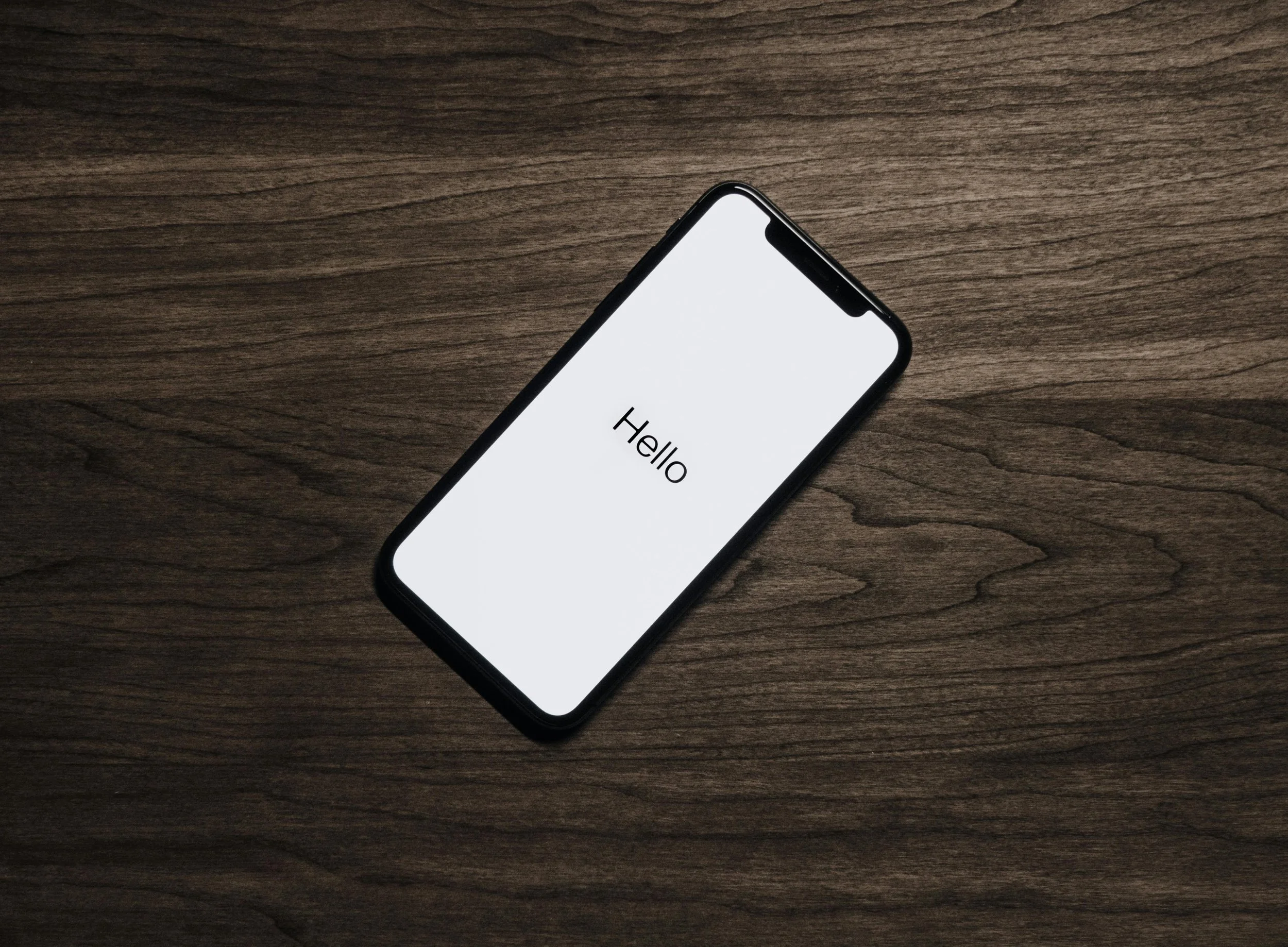A Personal POV of the Phone Phenomenon
The landline telephone I grew up using sat on the computer desk in our dining room, a white plastic handset connected by a curled cord to its cradle. It only extended around the corner into the hall if you wanted to have a semi-private conversation. It had no caller ID, but not many people needed to call us, and we just hung up on telemarketers. Our dialup internet used the same connection, so people couldn’t call us when we were online. My parents eventually allowed my brother to have a landline extension in his bedroom when he was in his early teens (in the early-2000s). That was a big change, because that meant multiple people could be on the phone at once in our household.
The cell phone era really started to take off in the early- to mid-2000s. For my family, that meant getting an emergency cell phone for our van. This handset was only slightly smaller than our landline handset. It had an antenna and used a prepaid, minutes-based plan.
My brother and sister both got cell phones when they started working, paying for them independently. My mom got a personal cell phone around the same time. In those years, we also got DSL “high speed” internet, which allowed the use of the phone and internet simultaneously, but we stopped using the landline so much.
I didn’t get a cell phone until I went off to college because I wasn’t willing to pay for it myself until then (my parents weren’t going to pay for a family phone plan). Also, lots of people around me had cell phones that I could borrow if needed, and I had our home phone number and my mom’s cell phone number memorized.
Having a cell phone started out as a luxury, like having a car phone in the ‘80s and ‘90s. But it didn’t take long for technology and convenience to merge. The BlackBerry got popular, as did Motorola’s Razr phones. The iPhone was still in its early years in the late 2000s and early 2010s, though it quickly became the Phone To Have, if you could afford it.
When I got a small cell phone just before college, I promised myself and my parents that I wouldn’t become someone who was constantly distracted by it. That promise was broken within years, as I upgraded to my first smartphone halfway through college and began diving into it.
A lot has changed between then and now, though only around a decade has passed since I was in college. Today, we of the Western world seemingly can’t live without our phones, and we’re beginning to realize the massive impact they have on our lives and wellbeing. People are going viral online doing “ditch the phone” or “brick the phone” experiments, extolling the virtues of being disconnected from technology for extended periods of time. The cameras on our phones are better than any I grew up using, which has also changed the fabric of our society. It’s hard for me to believe that just 15 or 20 years ago, a cell phone was technology a lot of people could live without for the most part.
What happened? Well, there are entire books and scientific studies about that, but the short answer is “capitalism and the internet got married.”
I know now that I’m at the very least obsessed with my smartphone, and at worst, addicted to it. And I’m not alone.
Tech companies have spent billions, maybe even trillions, of dollars making sure that our phones are the first thing we reach for when we wake up or at the slightest hint of boredom, powerful emotion, craving, or desire to learn something quickly.
Please don’t hear me say smartphones are evil. They are tools, devices that become what we make them. Unfortunately, encouraged by marketing, we often make them idols. Phones are part of the reason social media has such a firm grasp on us. There’s a very good reason why Instagram won’t let you post from any device but your phone.
We weren’t meant to be so connected to the entire world that we miss the world right in front of us.
What if we could make our phones tools again, things that we’ve learned to control rather than passively letting them control us?
I want to be less reliant on my smartphone, and at the same time, I don’t want to give it up. It’s a troubling and inconvenient conundrum. It’s radical to want to give up your phone for more than a minute at a time. If I don’t have it on me, I pat my pockets and my heart races as I realize I’m not connected.
I don’t like that feeling.


